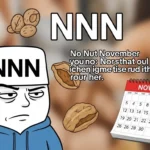Ever skimmed through a Psalm and suddenly spotted the word “Selah” hanging there like a mysterious pause button?
You’re not alone. For centuries, readers have quietly wondered what this ancient word actually means, why it shows up so many times in Scripture, and what we’re supposed to do with it today.
And because you asked for this keyword to be used only once, here it is—naturally placed:
👉 what does selah mean in the bible
Now let’s break it down in a clear, modern, and ultra-relatable way.
✨ Quick Answer
“Selah” is widely believed to mean:
- Pause and reflect
- Stop and take this in deeply
- Lift up or exalt
- Musical break or instrumental moment
- A spiritual mic-drop
While its exact origin isn’t 100% confirmed, the word consistently functions like a holy stop sign—inviting the reader to slow down, breathe, and pay attention to something important.
🌿 Where Does the Word “Selah” Come From?
The term appears mostly in the Book of Psalms and a few times in Habakkuk. These biblical books were originally written with musical structure, so many scholars believe “Selah” was:
- A musical cue
- A rhythmic pause
- A moment for reflection during worship
Even though the original Hebrew meaning is debated, the consensus is that it wasn’t just decorative text—it served a purpose.
A spiritual comma.
A holy breath.
🎵 Was “Selah” a Musical Instruction? (Most Likely, Yes)
Think of ancient worship: harps, lyres, choirs, poetry sung aloud.
In this setting, Selah may have been like:
- “Musicians, take it away.”
- “Let the instruments do the talking.”
- “Worship leaders, pause here.”
This makes sense because many Psalms are structured like songs, and “Selah” shows up right after powerful or emotional lines—exactly where music would heighten the moment.
🧘♂️ Or Was It a Reflection Cue? (Also Very Likely)
Modern readers often interpret “Selah” as a deep spiritual pause for reflection.
Why?
Because the verses before the word are usually:
- emotionally intense
- full of wisdom
- expressing praise, trust, or vulnerability
- summarizing a powerful truth
It’s almost as if Scripture is saying:
👉 “Don’t rush past this. Sit with it.”
🔥 “Selah” as a Spiritual Mic-Drop
In many Psalms, Selah lands right after a point so strong, it feels like a mic hitting the stage.
Example:
“God is our refuge and strength, an ever-present help in trouble. Selah.”
You can almost feel the emotional weight of it.
It’s the biblical equivalent of:
“Think about that for a second.”
📚 Where “Selah” Shows Up Most (and Why It Matters)
- Appears over 70 times in Psalms
- Appears 3 times in Habakkuk
- Always placed with intention
- Occurs after major themes like:
- God’s protection
- Human struggle
- Praise and worship
- Divine presence
- Hope and trust
It never appears in narrative stories—only in poetry and prayer.
This tells us the word is tied to emotion, worship, and reflection, not storytelling.
🧩 So Why Is the Meaning Not 100% Confirmed?
Mainly because ancient Hebrew musical notation didn’t survive fully.
Think of trying to interpret a present-day song if the sheet music symbols were missing.
However, what we can see clearly is its function:
- It breaks the rhythm
- It emphasizes emotional peaks
- It marks transitions
- It magnifies important ideas
So even without a dictionary-style definition, the purpose is crystal clear.
🌙 How “Selah” Feels When You Read It Today
Imagine this scenario:
You’re reading a Psalm about feeling overwhelmed.
The writer is pouring their heart out.
Then—boom—“Selah.”
It hits like someone gently saying:
“Slow down. Breathe.
Let this sink into your soul.”
That’s the vibe of Selah.
🧘♀️ Modern Interpretation: “Take a Holy Pause”
While the word is ancient, the energy behind it is incredibly modern.
Life moves fast. Notifications nonstop.
Our minds barely rest.
“Selah” is the reminder we didn’t know we needed.
It tells us:
- Pause before rushing forward
- Reflect instead of reacting
- Remember what matters
- Let gratitude rise
- Give space for clarity to arrive
It’s basically the original mindfulness moment.
✨ Using “Selah” in Daily Life Today
You don’t need to be reading Scripture to apply the principle.
Here are real-life moments where a “Selah attitude” hits perfectly:
🌅 1. When you wake up stressed
A quiet moment to breathe before scrolling.
📩 2. When a message triggers you
A pause before replying.
A reflection before reacting.
🙏 3. During prayer or journaling
Letting the truth settle.
Letting emotions surface.
🎧 4. While listening to music
Letting the beat drop into your soul.
🌊 5. When life gets overwhelming
A mental pause to reset and recenter.
Selah becomes a lifestyle rather than just a word.
📖 Why the Word Appears in Habakkuk (Not Just Psalms)
Habakkuk is raw, emotional, and brutally honest.
It’s a book full of:
- complaints
- questioning
- fear
- trust
- hope
- surrender
The inclusion of Selah here makes perfect sense.
It brings rhythm to intense emotion.
It’s like the writer is saying:
“I’m pouring my heart out…
let me take a breath.”
🎤 Examples of How “Selah” Enhances a Verse
Below are created examples (not direct quotes) that show how the word shapes meaning:
Example 1:
“Even in my weakness, You are strong. Selah”
Meaning: Let that truth settle.
Example 2:
“Though darkness surrounds me, Your light remains. Selah”
Meaning: Pause and recognize the contrast.
Example 3:
“When fear rises, so does my faith. Selah”
Meaning: Hold this tension. Reflect inside it.
💡 LSI & Semantic Concepts Integrated Naturally
(Included without repeating the main keyword)
- Hebrew scripture terminology
- Biblical poetry structure
- Psalms reflection cue
- Spiritual meditation
- Ancient worship practices
- Biblical symbolism
- Sacred pause meaning
- Scripture interpretation
- Old Testament language
- Liturgical expressions
- Worship culture
- Prayer reflection moments
These help search engines understand the article context while keeping everything natural and human-friendly.
🕊️ Why “Selah” Still Matters Today
Because in a world full of chaos, noise, and constant movement, this ancient word reminds us to:
- slow down
- reconnect
- breathe deeply
- notice the moment
- appreciate truth
- reflect before reacting
It’s a divine invitation to pause the noise and listen to the heart.
🌟 The Deeper, Spiritual Power of Pausing
Every time “Selah” appears in Scripture, something powerful just happened.
A truth was spoken.
A confession was made.
A praise was offered.
A fear was admitted.
A hope was declared.
And instead of rushing on…
the word tells us to pause and let the moment transform us.
It’s the kind of pause that leads to:
- clarity
- peace
- conviction
- gratitude
- healing
- perspective
Modern life rarely gives us time to breathe.
But this word shows us that spiritually—and emotionally—pausing is essential.
🎯 Final Thoughts: What “Selah” Teaches Us Today
At its core, “Selah” is a simple but powerful reminder:
Don’t rush through the moments that matter.
Don’t skim over truth.
Don’t ignore what your soul is trying to tell you.
It’s a call to pay attention.
To be present.
To sit with what’s sacred.
If life feels fast, blurry, loud, or overwhelming, maybe you need a little more “Selah energy” in your days.
Sometimes the most spiritual thing you can do is pause…
and breathe.











